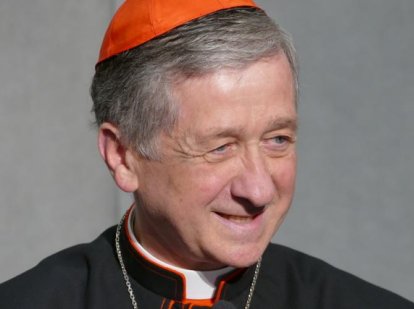
Chicago Archdiocese using Catholic cemetery funds to cover sex abuse costs
The Archdiocese of Chicago is using proceeds from its cemetery system to help pay down its sizable settlement debt from clergy sexual abuse, a new report says.
The Chicago archdiocese currently owes roughly $200 million from sex abuse settlements and other related costs, according to the Chicago Sun-Times, and for years it has used loans or sold property to meet those costs.
But the archdiocese, led by Cardinal Blase Cupich, has been redirecting some $8 million a year from its cemetery system to pay the sex abuse–related debt down, and the rerouting of funds has been conducted without being disclosed to the public, the report said.
The information came from a source with knowledge of Archdiocese of Chicago operations, it said.
The news outlet had reported in February that the archdiocese owes more than $200 million, mostly connected to sex abuse claims, and could be looking at another $100 million or more in costs from pending and forthcoming sexual misconduct proceedings.
Neither Cupich nor the archdiocese’s chief operating officer, Betsy Bohlen, would comment for the article, but spokeswoman Paula Waters said in a statement that investment earnings on cemetery assets are used to help fund annual debt payments.
“These investment earnings are over and above what is needed for the proper care of our cemeteries,” Waters’s statement said. “We take all of our obligations seriously and discharge them responsibly.”
Waters declined to answer questions about the archdiocese’s debt and whether the archdiocese had not been completely transparent in failing to disclose this rerouting of revenue before now. She said it’s not accurate to describe the funds as “diverted from cemeteries,” since the cemeteries “are fully and amply funded.”
“It is excess earnings,” Waters said.
Archdiocesan leaders also declined to say whether that money came from Catholics purchasing burial plots.
“Operating support (for the cemetery system) is derived primarily from the sale of easements providing for graves, crypts and burial services, and from investment earnings,” according to the archdiocese’s latest public financial statement.
That statement also showed that the Archdiocese of Chicago cemetery system had more than $600 million in investments in 2017.
The archdiocese is one of the largest landholders in the Chicago area, the Sun-Times report said, and its 45 Catholic cemeteries are a significant part of those holdings.
The archdiocese’s “cemeteries sales and services” made around $52.5 million in revenue in 2017, an increase of some $2 million over the previous year, the financial records show, and cemetery expenses that year were recorded at $53.6 million. There was also $18.3 million in undeveloped cemetery land recorded that year.
Waters had said previously that the archdiocese uses “the proceeds from asset sales and borrowings to pay abuse claims. We use interim borrowings to meet obligations in advance of receiving sale proceeds.”
Cupich, appointed in 2014 by Pope Francis to lead Chicago and elevated to cardinal by the pope in 2016, was also tapped by Francis to help organize the pope’s February summit on clerical sex abuse.
At a Vatican press conference in the days leading up to the February abuse gathering, Cupich had conceded that more than 80 percent of the clergy sex abuse victims have been male teenagers but denied a causal connection between clerical abuse and actively homosexual clerics.
Cupich had also said previously that homosexuality is not a significant contributing factor in the sex abuse crisis, even though the data indicate otherwise.
He derided former U.S. apostolic nuncio Archbishop Carlo Maria Viganò’s testimony from last August on the cover-up of abuse by ex-cardinal Theodore McCarrick as just a “rabbit hole” distracting the Church.
In response to Viganò’s testimony, Cupich suggested that critics of Pope Francis — Viganò and his supporters — are bigots who “don’t like him because he’s a Latino.”
The cardinal said Francis has a “bigger agenda” than the issue of abuse cover-up raised in the Viganò testimony and needs to “get on with other things of talking about the environment and protecting migrants[.]”
He defended the Vatican putting the U.S. bishops off from voting on measures to address abuse cover-up at their Fall General Assembly in Baltimore last November in lieu of Francis’s February abuse summit — the summit criticized for producing statements in place of action and for being limited to minors when the McCarrick scandal had brought rampant abuse of seminarians to light.
Cupich stated from the floor of the U.S. bishops’ Baltimore meeting that sexual offenses against minors versus adults should be regarded separately, “because in some of the cases with adults … involving clerics, it could be consensual sex.”
